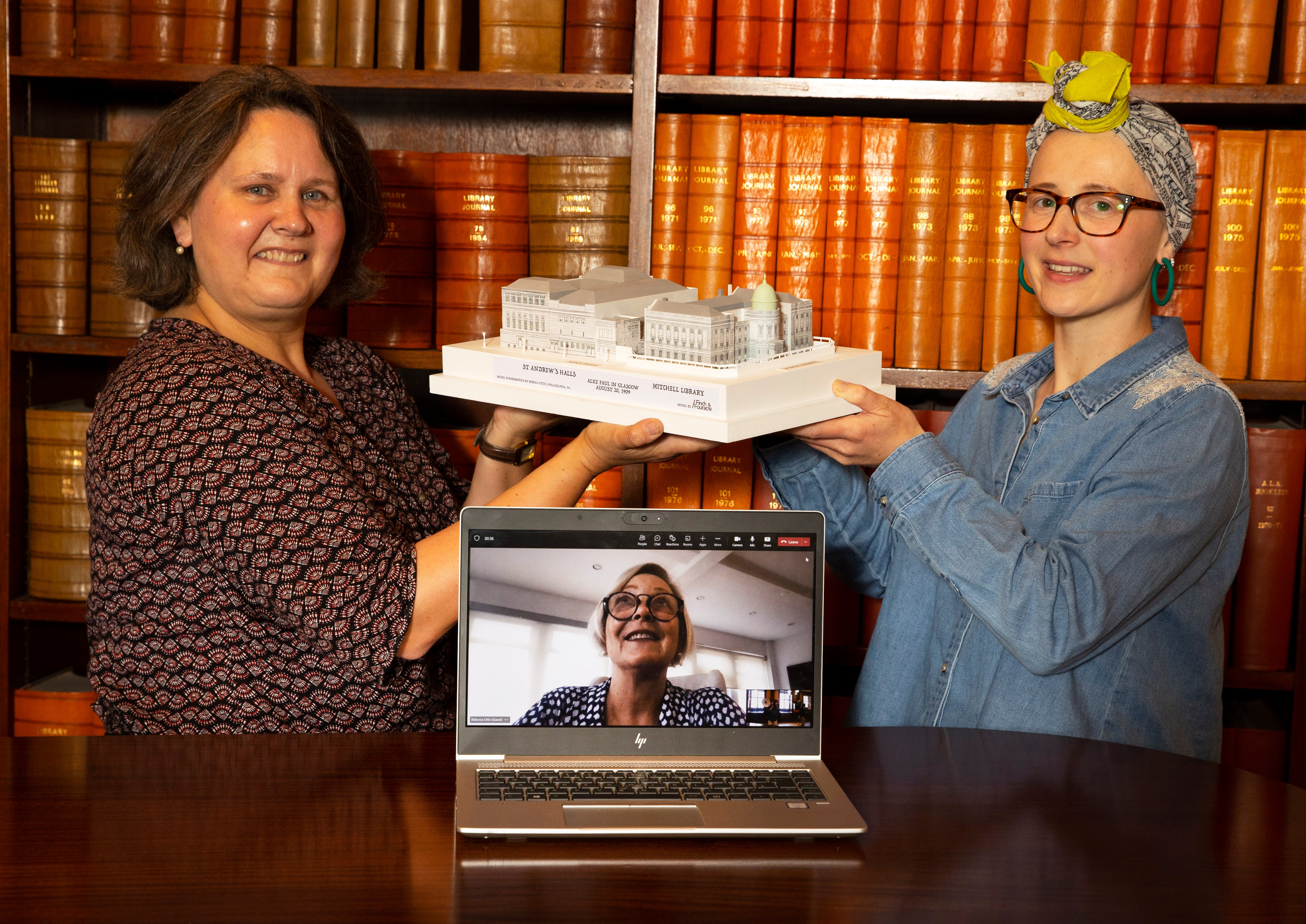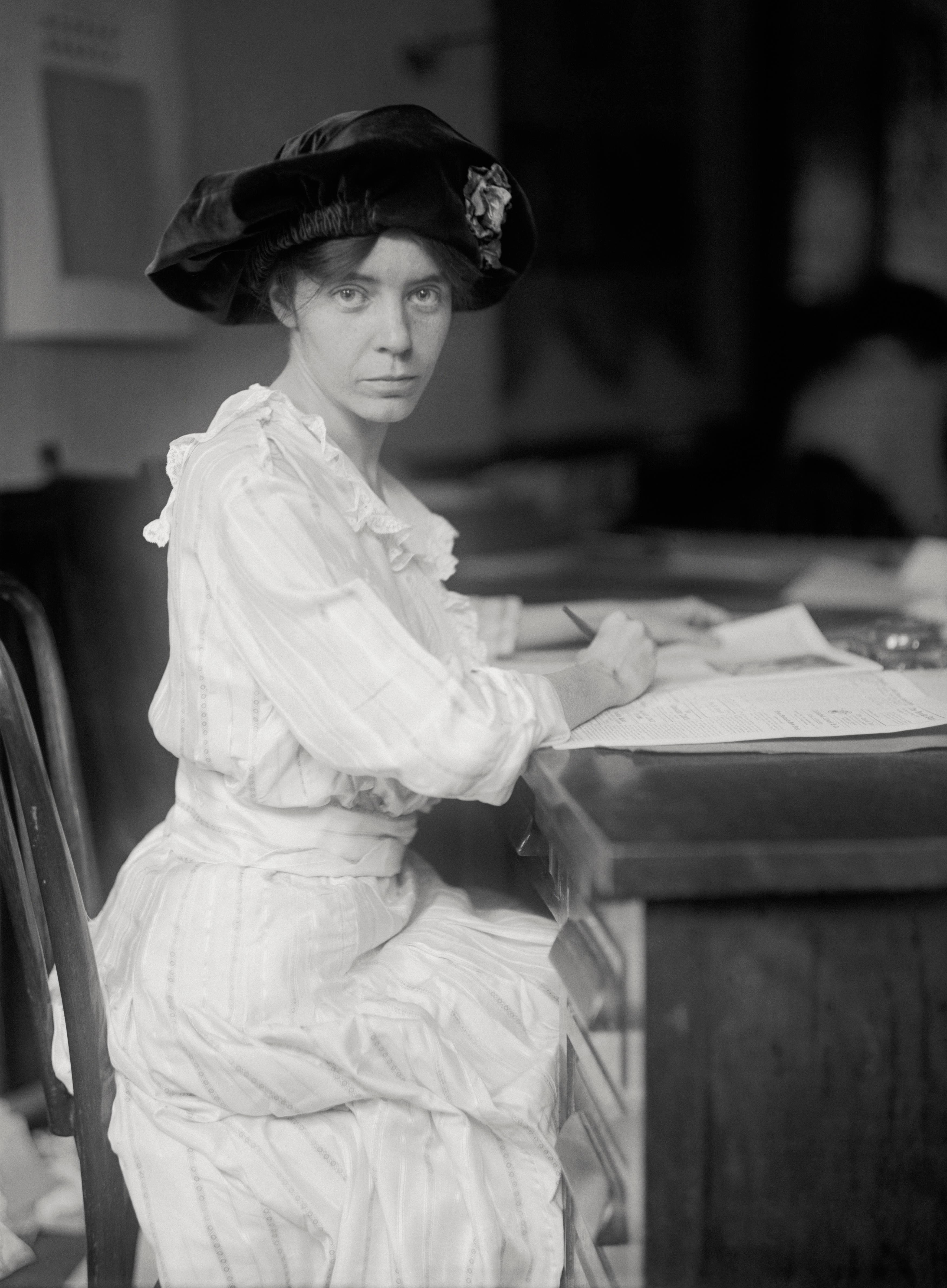
A model exploring a suffragette’s rooftop protest in 1909 has been acquired by the library where it happened.
American women’s rights activist Alice Paul, then aged 24, climbed on to the roof of St Andrew’s Halls in Glasgow, whose facade is now part of the Mitchell Library, on August 19 that year and hid overnight.
She planned to break in as evening came on August 20 and disrupt a political speech by leader of the House of Lords Lord Crewe, but was discovered before she could do so.
American writer Rebecca Otto commissioned Glasgow model maker Franki Finch of Finch & Fouracre to make models of St Andrew’s Halls and the Mitchell Library as it looked inside its construction site by mid-1909, to help visualise Ms Paul’s movements on the night.
She also asked Ms Finch to make a second replica model, which has now been donated to Glasgow Museums collections, part of Glasgow Life.
Susan Taylor, special collections librarian with Glasgow Life, said: “This model is a welcome addition to Glasgow’s suffrage movement collection.

“The archives are full of enthralling items about things that happened right here in the city, like Alice’s valiant exploits. It’s amazing she didn’t fall.
“The builders who were working on the Mitchell Library saw her, but when she explained what she was doing they let her carry on. It was only when another worker arrived that the police were contacted.
“It really helps to bring hidden stories about the suffrage movement on our doorstep to life. We are very grateful to Rebecca and Franki for gifting a model to Glasgow.”
Ms Paul was instrumental in the US suffrage movement, helping to secure American women the right to vote in 1920.
Although her attempt to disrupt Lord Crewe’s budget address was thwarted, her rooftop vigil made headlines and she and others were successful in causing a major disturbance that day in 1909.
St Andrew’s Halls was a large concert auditorium seating 4,500 people built in 1877 which was almost destroyed by fire in 1962.
The Mitchell Library was built on the eastern half of the block between 1907 and 1911.
After the 1962 fire, only the facade to Granville Street remained, and the Mitchell was extended to occupy the whole block, incorporating the remaining facade.

Ms Finch produced a 1:375 scale model of both buildings, which can be lifted to reveal their ground floor plans from 1909.
It reveals the location of the Great Hall inside St Andrew’s Halls and its proximity to Ms Paul’s likely hiding place on the roof.
She said: “This was a really fascinating project to work on. The first part of my commission was to study the original drawings and photos held in the Mitchell archives, delving into the old drawings and studying photos to try and get the detail correct was invaluable.
“It’s amazing to see the model on show in the building which it depicts, and I am delighted the library plans to have some of my work in their archives.”
Ms Otto said: “The world knows Alice’s serious side: too often jailed, hunger striking or force-fed, founder of the National Woman’s Party and World Woman’s Party, who helped win women’s voting rights, wrote the US Equal Rights Amendment, and challenged the United Nations to foster equality for all.
“I wanted to know Alice inside a construction site, the night she discovered the trailblazer she’d become.”
The library is finalising plans for where the model will be displayed and anyone wishing to see it can email specialcollections@glasgowlife.org.uk.







